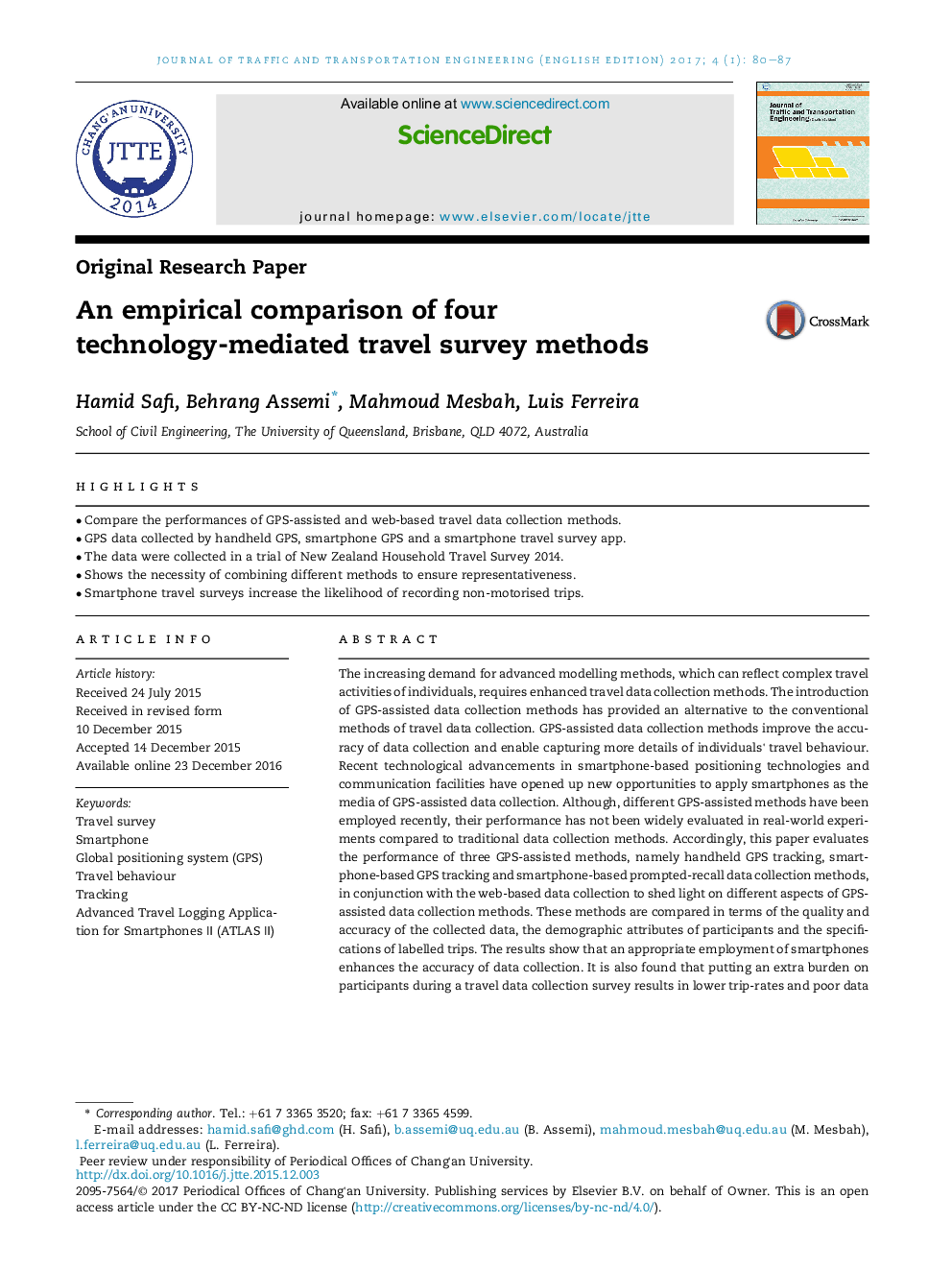| کد مقاله | کد نشریه | سال انتشار | مقاله انگلیسی | نسخه تمام متن |
|---|---|---|---|---|
| 4924674 | 1363104 | 2017 | 8 صفحه PDF | دانلود رایگان |
- Compare the performances of GPS-assisted and web-based travel data collection methods.
- GPS data collected by handheld GPS, smartphone GPS and a smartphone travel survey app.
- The data were collected in a trial of New Zealand Household Travel Survey 2014.
- Shows the necessity of combining different methods to ensure representativeness.
- Smartphone travel surveys increase the likelihood of recording non-motorised trips.
The increasing demand for advanced modelling methods, which can reflect complex travel activities of individuals, requires enhanced travel data collection methods. The introduction of GPS-assisted data collection methods has provided an alternative to the conventional methods of travel data collection. GPS-assisted data collection methods improve the accuracy of data collection and enable capturing more details of individuals' travel behaviour. Recent technological advancements in smartphone-based positioning technologies and communication facilities have opened up new opportunities to apply smartphones as the media of GPS-assisted data collection. Although, different GPS-assisted methods have been employed recently, their performance has not been widely evaluated in real-world experiments compared to traditional data collection methods. Accordingly, this paper evaluates the performance of three GPS-assisted methods, namely handheld GPS tracking, smartphone-based GPS tracking and smartphone-based prompted-recall data collection methods, in conjunction with the web-based data collection to shed light on different aspects of GPS-assisted data collection methods. These methods are compared in terms of the quality and accuracy of the collected data, the demographic attributes of participants and the specifications of labelled trips. The results show that an appropriate employment of smartphones enhances the accuracy of data collection. It is also found that putting an extra burden on participants during a travel data collection survey results in lower trip-rates and poor data quality. Finally, it is found that the application of smartphone-assisted data collection methods help reporting non-motorised trips more accurately.
Journal: Journal of Traffic and Transportation Engineering (English Edition) - Volume 4, Issue 1, February 2017, Pages 80-87
